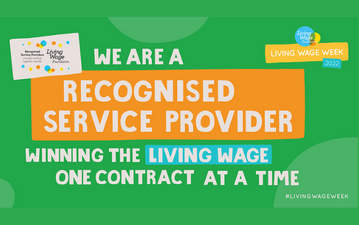What can Rod Tidwell teach us about job offer negotiation?
The final stage is having the conversation about the job offer, perhaps it’s better than you expected but it could be less. Negotiating a job offer is often considered a taboo subject or one that people can often feel less comfortable with. So, how do you approach the conversation?
When we are talking about a job offer – it is not just salary. It encompasses a whole range of elements such as flexible working, job title, learning and development opportunities and the possible team/person and cause you will go on to support. It is always worthwhile considering the offer as a whole.
It is also worth bearing in mind how gender plays into this subject.
A survey from Glassdoor in the US found that 68% of women accepted the salary they were offered and did not negotiate, a 16-percentage point difference when compared to men (52%).
In the UK a recent survey by CV Library found that:
• Men are more likely to negotiate salary (83.1%) than women (73.1%).
• Women are more likely to debate working hours (56.4%) than men (40.9%)
• Women are less concerned about job titles, with almost a third (29.5%) of men saying that their job title is the most important part of a job offer, compared to a quarter (22.9%) of women
This doesn’t affect how you should approach the negotiation of a job offer, but it reinforces why you should negotiate – other people (of all genders!) are negotiating on all the different elements that make up the offer and it’s okay for you to do so too.
6 top tips from our expert recruiters.
1. Don’t be Rod Tidwell
You are probably still wondering who is Rod Tidwell? He is the American Football player from Jerry Maguire and his approach to job offer negotiation was shouting “Show me the money”.
Don’t do that.
The first thing to remember is in all your communications be reasonable, polite and logical – we are presenting fair reasons on why you want to adjust elements of a job offer. How both parties conduct themselves in the negotiation can still influence perceptions of each other, and after all if you get the role, you will likely be working with the very people you are speaking with.
2. Flexible working, the future of work?
Salary is important but not the only element of a role. If the hiring organisation has fixed salary bands or no room to manoeuvre be prepared to consider what else you might value. Flexible working/ hybrid working has recently become much more prevalent as part of job offer negotiations. You may want to consider what’s important to you and what the hiring organisation can offer in terms of homeworking, hybrid working, compressed hours or flexibility in general. Bear in mind a lot of organisations are exploring these new ways of working too, so be prepared to offer reassurance and flexibility in return where possible.
3. Take a moment
Don’t be afraid to thank the recruiter for the offer and ask for a time to come back to them. It will give you the opportunity to digest the information, consider the different elements seek some friendly advice, read this blog and decide if you want to accept the offer or ask for some adjustments.
4. Know your value
This is something we recommend to all job seekers so they can pitch their job search appropriately but it really comes into sharper focus at offer stage. It is essential to understand the market value for your skills and experience. If you want to negotiate on salary then understand your current market worth by looking at comparable roles with comparable organisations.
It would be unhelpful to present back a Finance Manager role in an FTSE 100 company if you are applying for the same role in a charity. That is not to say they have different levels of experience or value – but they are not operating in the same market.
Also, when looking for roles make sure you focus on skills/experience rather than a job title – a Manager in one organisation might be the equivalent to a Director in another.
5. Don’t use a closed question on salary
A common mistake is to approach the salary conversation as an immediate straight yes or no. It is certainly positive and very important to know specifically what you need or can live with and have that figure in mind. However, as negotiate literally means to obtain or bring about by discussion, it is useful to adopt a more discursive approach. You can discuss more openly and funnel down towards your target. ‘I was looking for X, is this possible?’, ‘I was keen to explore if there was an opportunity you appoint at a higher salary? Ideally x..?
It is subtle, but we see greater success for both parties when using this approach as they get more space to listen and understand each other’s perspective and get a resolution in whatever form.
6. Don’t forget about what’s next
Finally, an important thing to consider is what opportunity does this role offer you for learning, development and job satisfaction – you might be doing this role for the next two years and it is essential you enjoy it!







